Long read: The story of 'Madame Gray', who transformed women's cycling
We look back on the career of the gifted administrator whose drive and tenacity enabled her to shape the sport into what it is today and become the godmother of women’s cycling
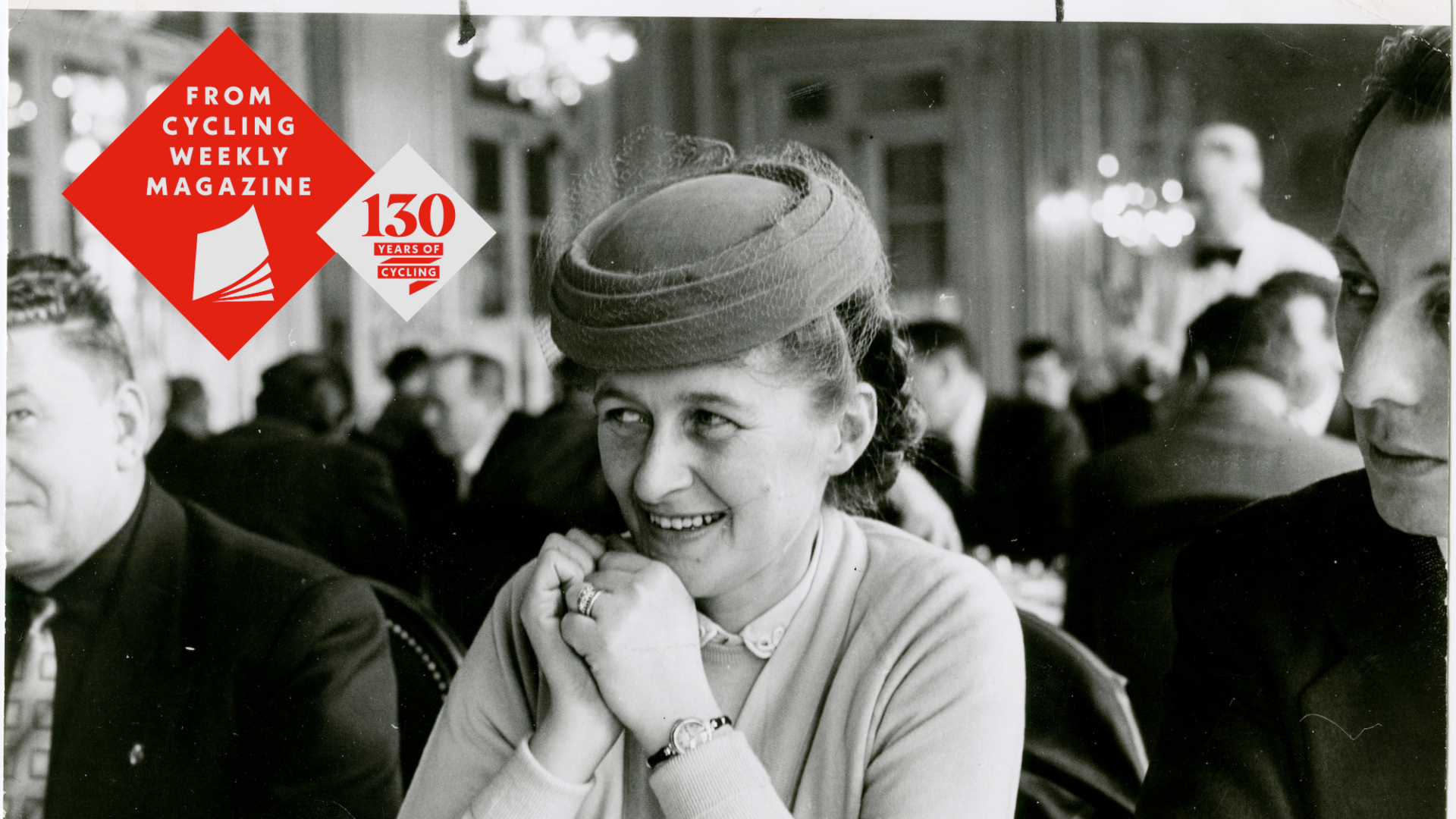
"Madam President.” That was the headline splash of the 18 December 1976 issue of Cycling. Pictured underneath was a smiling Eileen Gray in formal attire, looking happy if a little uneasy, perhaps uncertain of exactly what the future will bring.
The picture had been taken at the annual British Cycling Federation’s (BCF) National Council meeting, held in Blackpool the previous weekend. Prior to holding votes on introducing new track titles, increasing subscription prices and limiting cash prizes for amateurs, came the election of Gray to the position of BCF president. It was a four-horse race that went just one round – the 56-year-old Gray immediately claiming 38 of the 75 votes cast and so securing an overall majority at the first time of asking.
"It was an emotional moment," Gray said after the results had been announced. "When one considers the worth of the others who stood, I did not expect for one moment that this election would be decided on the first ballot…I trust and hope that I will do all I can for the future of the British Cycling Federation."
It was a historic moment as Gray became the fifth president of the BCF, the first, and to date only, woman to hold the position. Cycling hailed the appointment and warmly congratulated the newly elected president. "She is more than worthy," ran its editorial. "Her involvement at grass-roots level, as well as with top committees, plus her declared intention to be a ‘working’ president, give us great encouragement."
Founding the WCRA
Born on 25 April 1920 in Bermondsey, London, Gray discovered cycling during the Second World War, taking to the bike after transport strikes caused her to arrive late at the engineering company where she worked as an inspector, incurring the wrath of her supervisor. "I rode to Harrow Road and back every day – round the rubble and the potholes, through all weathers, night and day," Gray told British Cycling in 2010. "But I was never late again, and he never had another opportunity to tell me off."
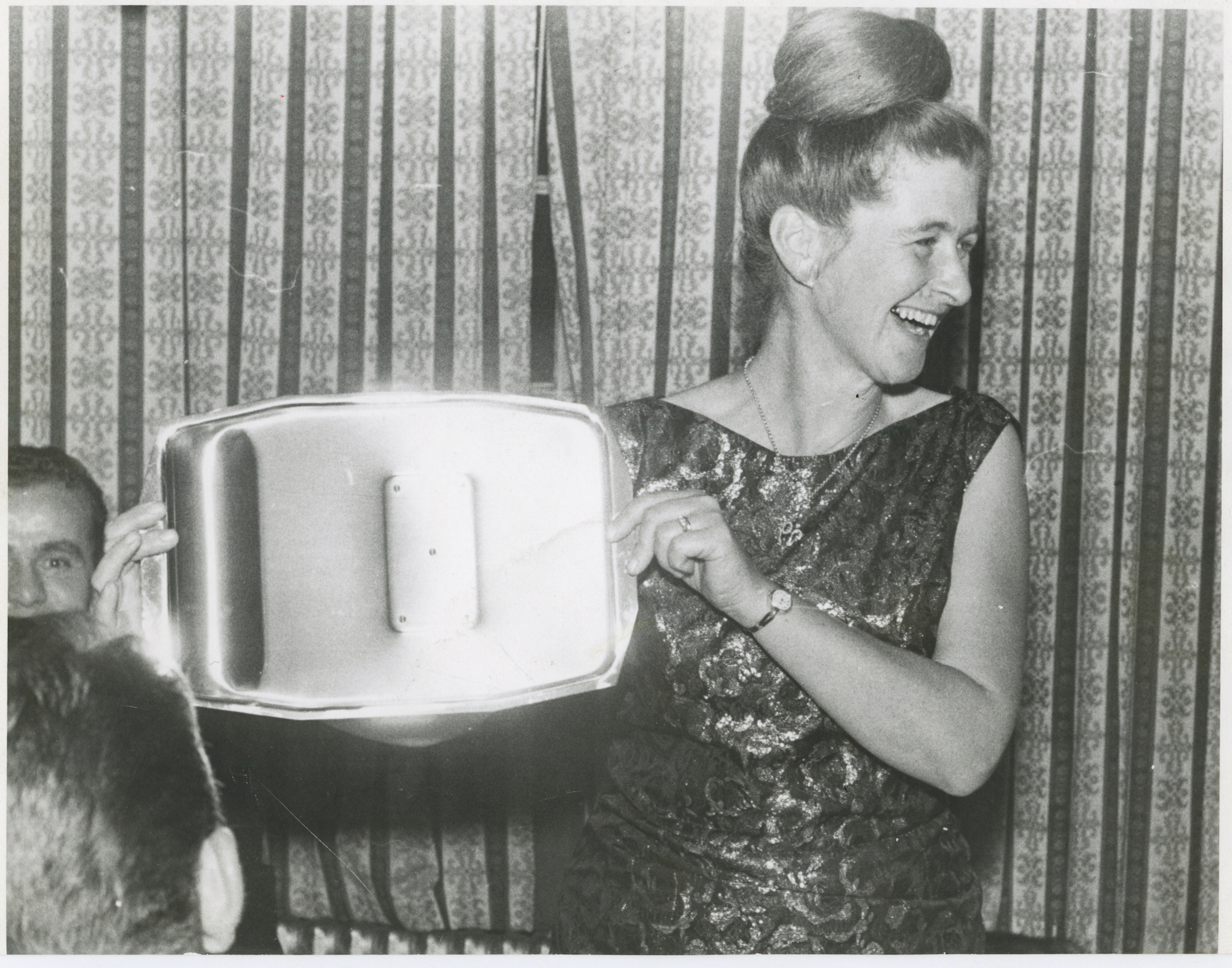
After a short period of racing, Gray turned to team management and administration, founding the Women’s Track Racing Association in 1949 which later became the Women’s Cycle Racing Association (WCRA), paving her way into cycling governance. In 1955, she took a team of five women to the Tour de France Féminin, coming home with the win after the British riders dominated the race, prompting Coureur magazine to devote no fewer than 17 pages to the exploits of Gray’s team.
Get The Leadout Newsletter
The latest race content, interviews, features, reviews and expert buying guides, direct to your inbox!
Bernadette Swinnerton rode for Gray under the banner of the WCRA in the 1960s. "Eileen would organise everything to the last detail," Swinnerton recalls. "When you went away anywhere with Eileen as manager, you felt as if you were in a battleship. She would stick up for you, she looked after you and so long as you did what she said you were fine, nothing could touch you… I was fully confident being with her. I knew that when I was away nothing would go wrong if Eileen was looking after us."
Gray’s founding of the WCRA was fundamental to the development of women’s cycling in Britain, promoting championships and international races. "She gave everything to women’s cycling," says Swinnerton. "It went right through her, like the writing on a stick of Blackpool rock." Swinnerton says that no one was really interested in women’s cycling at the time. "You had to twist organisers’ arms to get them to put a women’s event on or to include some women’s races at a track meeting.

"You really had to get an organiser on your side and stick in a couple of events. Eileen really pushed it – it has her behind everything."
Gray successfully lobbied the UCI for the recognition of women’s world records in 1955 and then secured a UCI-sanctioned World Championship for women. "Eileen Gray, forthright women’s advocate within the National Cyclists’ Union, had plunged heart and soul into the vicious fight that had lasted for a number of years," wrote Chas Messenger in Cycling. "By sheer persistence [she] had at last got the ear of the pundits of the UCI and, wonder of wonders, had got them to change their minds and put on the first World Road Championship."
The Olympic bid
The International Federation for Amateur Cycling (FIAC) had tried to get a women’s road race on the Olympic programme for the Tokyo 1964 Games, a proposal that was rebuffed by the International Olympic Committee (IOC). Gray continued to push the case in her role as president of the WCRA, engaging Lord Killanin, then president of the IOC, on the subject at a sportswriters’ dinner in 1970. In 1973 she wrote a letter to Lord Killanin on the subject. "I have now had the opportunity of a long discussion with M. Pacciarelli secretary of [FIAC], who assures me that as strong a case as possible was put to you that women should be included in the games," Gray wrote. "He was kind enough to show me the very terse sentence in a letter dealing with other matters where the plea was rejected without further comment."
The IOC apparently wasn’t convinced. It said sufficient evidence hadn’t been produced that women’s cycling fitted the criteria of an "international" sport. This despite the aim being not to add a new sport to the Olympic programme, but a new event.
Talk to people today who worked alongside Gray and a picture emerges of a tenacious and determined woman who garnered much respect. "She was a driven lady who fought tooth and nail for the women’s sport," recalls Phil Liggett, who first came into contact with Gray while working as a staff writer on this publication. "The two editors of Cycling over the period – Alan Gayfer and Ken Evans – were always ready to give her all the time she wanted."
In sports governance, tenacity and determination will only take you so far. Equally important is the ability to work effectively within the machinations of various committees and councils. Ian Emmerson, Gray’s successor as BCF president, says Gray was skilled in this area and taught him much. "She worked hard on the FIAC body in that cause and made some good friends out there," he says. "She was very good at interpreting rules and regulations and how to conduct meetings – points of order and the technical side of being chair. Some of those things I still take with me today even though it was over 40 years ago."
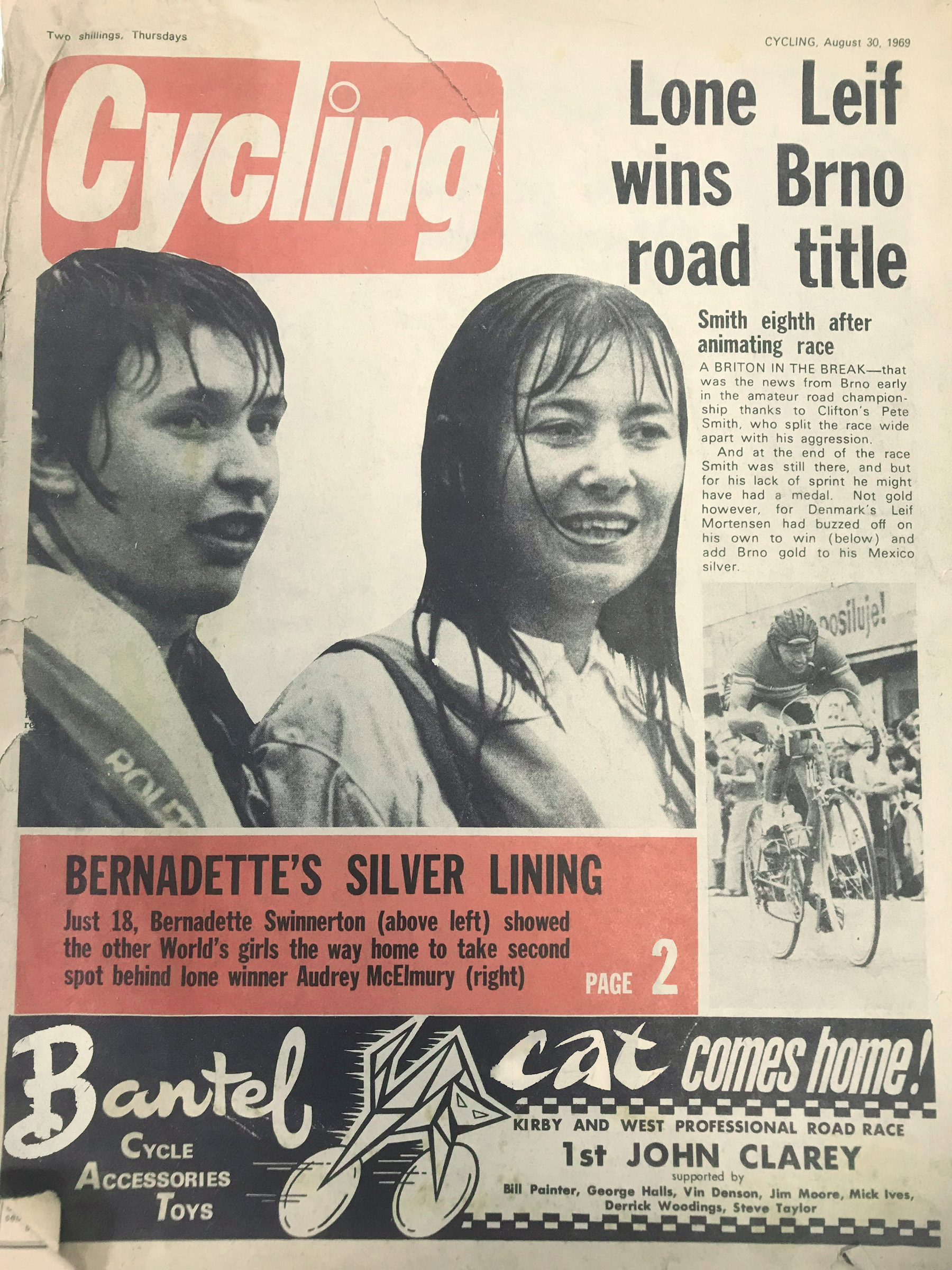
Liggett adds: "She may have fought for women, but she followed the same road when it came to men and politics."
In February 1977, just two months into her BCF presidency, Gray gave a talk to the Pedal Club. She said that inclusion of women’s cycling in the Olympic Games was the next logical step in the campaign for equality and expressed the hope that during her term of office she would be able to stand in the winner’s enclosure at the World Championships.
Gray’s administration would deliver both on both counts. First came a Worlds win courtesy of Mandy Jones on home roads. "I was part of the Worlds road organisation in Goodwood in 1982," says Liggett. "It was a stressful time and I saw Eileen in tears at the committee table, when sponsorship money was not seen to be coming in to put the Worlds on. "She was a passionate and concerned person."
It was clearly a difficult time for Gray, albeit one with a happy ending. "The 1982 World Championships saw a few tantrums and tears when things did not go to her taste," wrote Messenger when reflecting on Gray’s tenure in 1984. "The tears came thick and fast when she hugged me, when Mandy Jones came in with that splendid British victory."
Jones remembers standing alongside Gray that day. "I’ve got a lovely photograph of me in my rainbow jersey with her and she’s got a big beaming smile on her face," she says. "I guess from her point of view, given all the hard work she had put into women’s racing, getting women’s racing off the ground and getting recognition for women, it must have meant a massive amount to her."
Two years later, and after more than a decade of determined lobbying, Gray finally saw women racing in the Olympics. Catherine Swinnerton was the first British rider across the line of the women’s road race in Los Angeles, finishing 13th. "I was on the international scene for over 10 years and she was there every single year," she says. "The Olympic Games came at the end of my career. Before that there was always something missing. We always thought it wasn’t really fair that women’s cycling wasn’t involved.
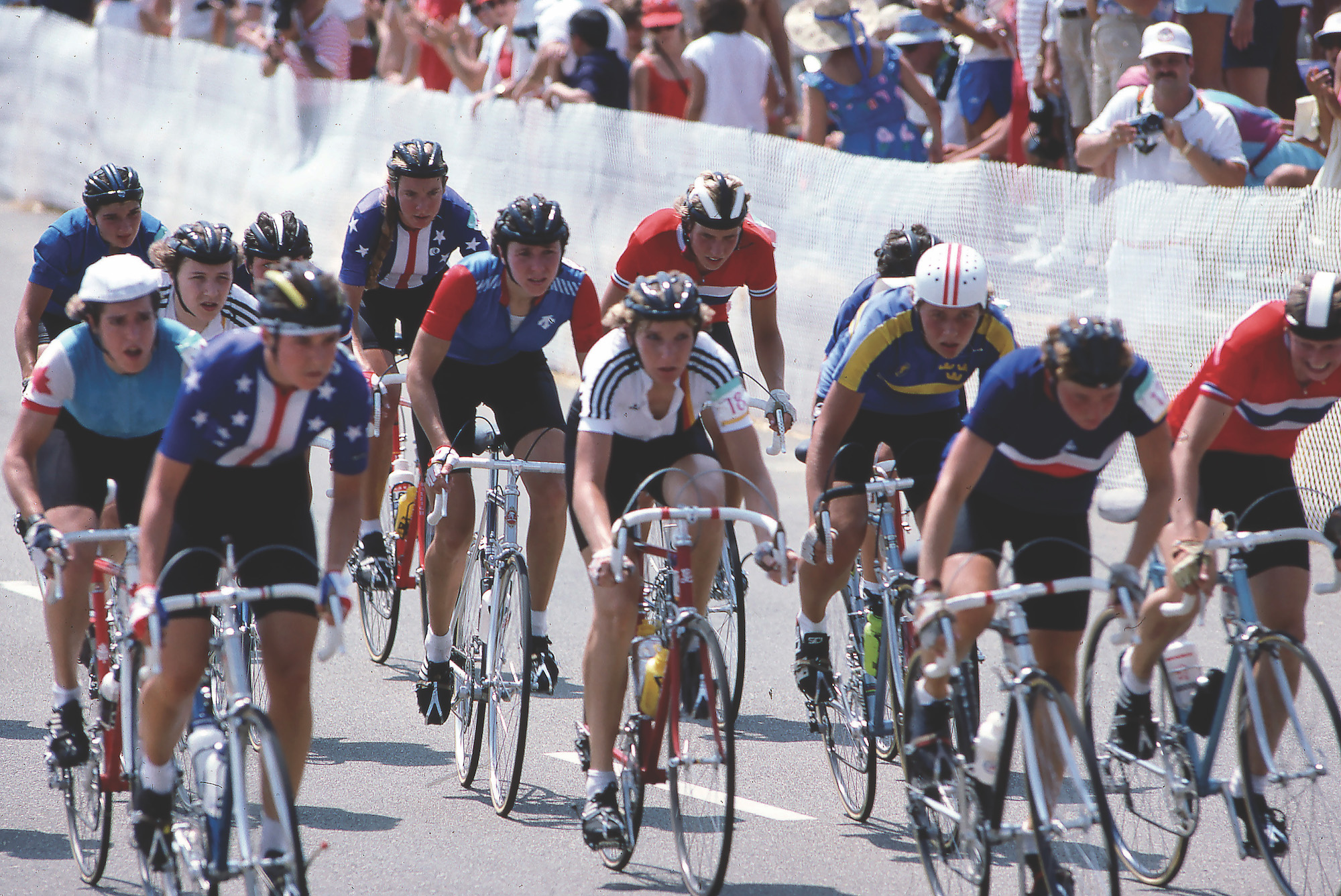
"As soon as we realised we had a chance [to go] the interest in women’s cycling just took off. It was a tremendous honour and a privilege to be selected to go. It was the chance of a lifetime, something you never forget. We were really grateful to Eileen for pushing to get us into the Games."
Gray’s time as BCF president ended in December 1985, and she went on to serve as vice-chair of the British Olympic Committee. She was appointed MBE in 1978 and CBE in 1997 and was among the 50 inductees into British Cycling’s inaugural hall of fame in 2010.
"She is obviously a very key figure in the history of British cycling," says former BCF and UCI president Brian Cookson. "My recollections of Eileen are of a first-class administrator and a very able person at the governance level. I’m not sure you would ever call her a radical feminist; she may even have been insulted by something like that. I think she was very much from that political background of powerful women who didn’t bother about gender in any sense. They just took it for granted that their voices were going to be heard."
Reflecting on his early days in administration, Cookson continues: "I was a bit in awe of her really. By the time I got to any sort of position in the UCI there were still some of the older guys around who would talk about ‘Madame Gray’ with reverence.
"They saw her as a powerful woman who was not to be ignored at a time when there were very few women in sports administration in any sense."
Gray died in 2015, aged 95. On the centenary of her birth and in what should have been an Olympic year, she should be remembered for the perseverance and political skills she used to transform women’s cycling. "I went around the world with Eileen," concludes Emmerson. "She always worked hard, was well-received and she succeeded in her objective. She was a pathfinder."

Thank you for reading 20 articles this month* Join now for unlimited access
Enjoy your first month for just £1 / $1 / €1
*Read 5 free articles per month without a subscription

Join now for unlimited access
Try first month for just £1 / $1 / €1
-
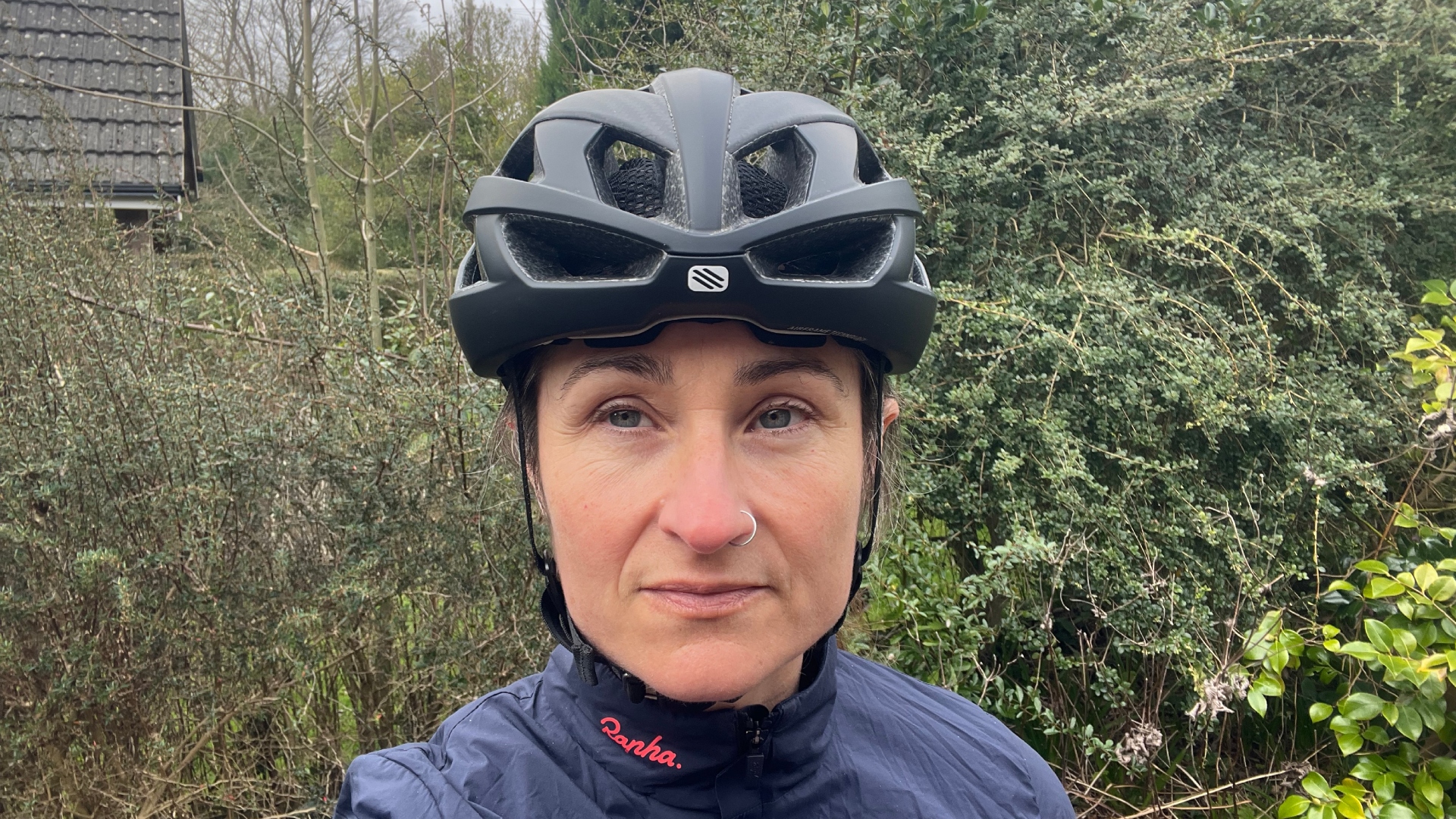 Rudy Project Rebel bike helmet review
Rudy Project Rebel bike helmet reviewRebelling against the solid shell oversized helmet fashion, the Rudy Project Rebel goes big on ventilation and breathability, but there is a weight penalty
By Hannah Bussey Published
-
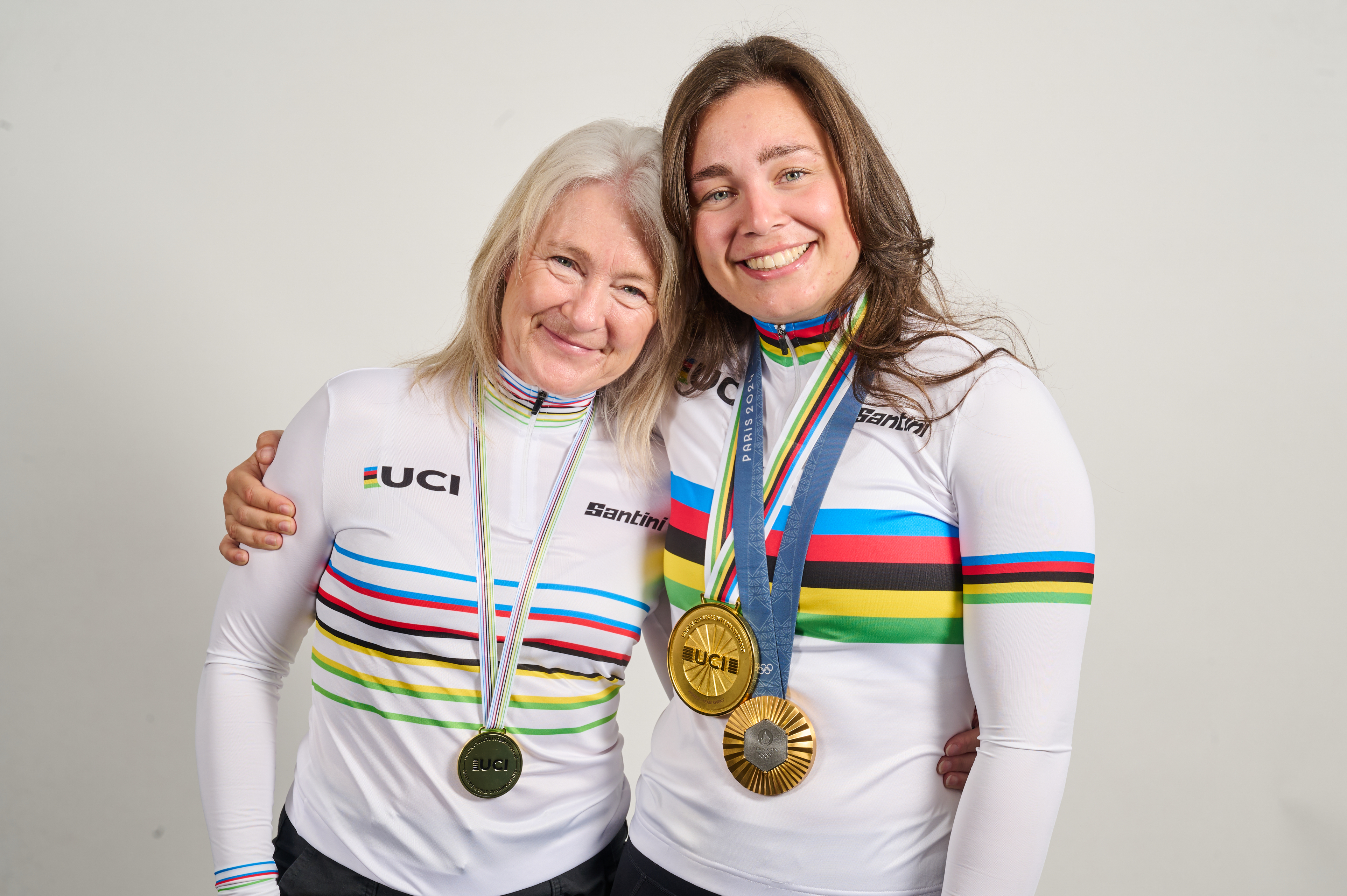 'I wanted to be world and Olympic champion – my parents made me feel that it was possible': Meet Sophie Capewell and her gold medal-winning mum
'I wanted to be world and Olympic champion – my parents made me feel that it was possible': Meet Sophie Capewell and her gold medal-winning mumSome mothers and daughters make memories together. The world-beating Capewells make history too. Tom Davidson meets the extraordinary duo
By Tom Davidson Published
-
 One woman among men: The incredible story of Alfonsina Strada
One woman among men: The incredible story of Alfonsina StradaAlfonsina Strada made headlines when she entered the 1924 edition of the Giro d’Italia, under the name 'Alfonsin', and the story of her grit and determination to finish against all odds lives on today
By Giles Belbin Published
-
 Watching Marley Blonsky's first century experience will motivate you to tackle your first 100-miler
Watching Marley Blonsky's first century experience will motivate you to tackle your first 100-milerWatch as All Bodies on Bikes advocate Marley Blonsky tackles her first gravel century.
By Anne-Marije Rook Published
-
 Motherhood or an athletic career? An impossible choice no more thanks, in part, due to the rise of esports
Motherhood or an athletic career? An impossible choice no more thanks, in part, due to the rise of esportsWith the rise of virtual cycling esports, world-class female endurance athletes no longer have to compromise motherhood and a professional career.
By Christopher Schwenker Published
-
 Errant horse interrupts the racing at women’s Strade Bianche
Errant horse interrupts the racing at women’s Strade BiancheDemi Vollering accompanied by the animal on her way to victory
By Stephen Puddicombe Published
-
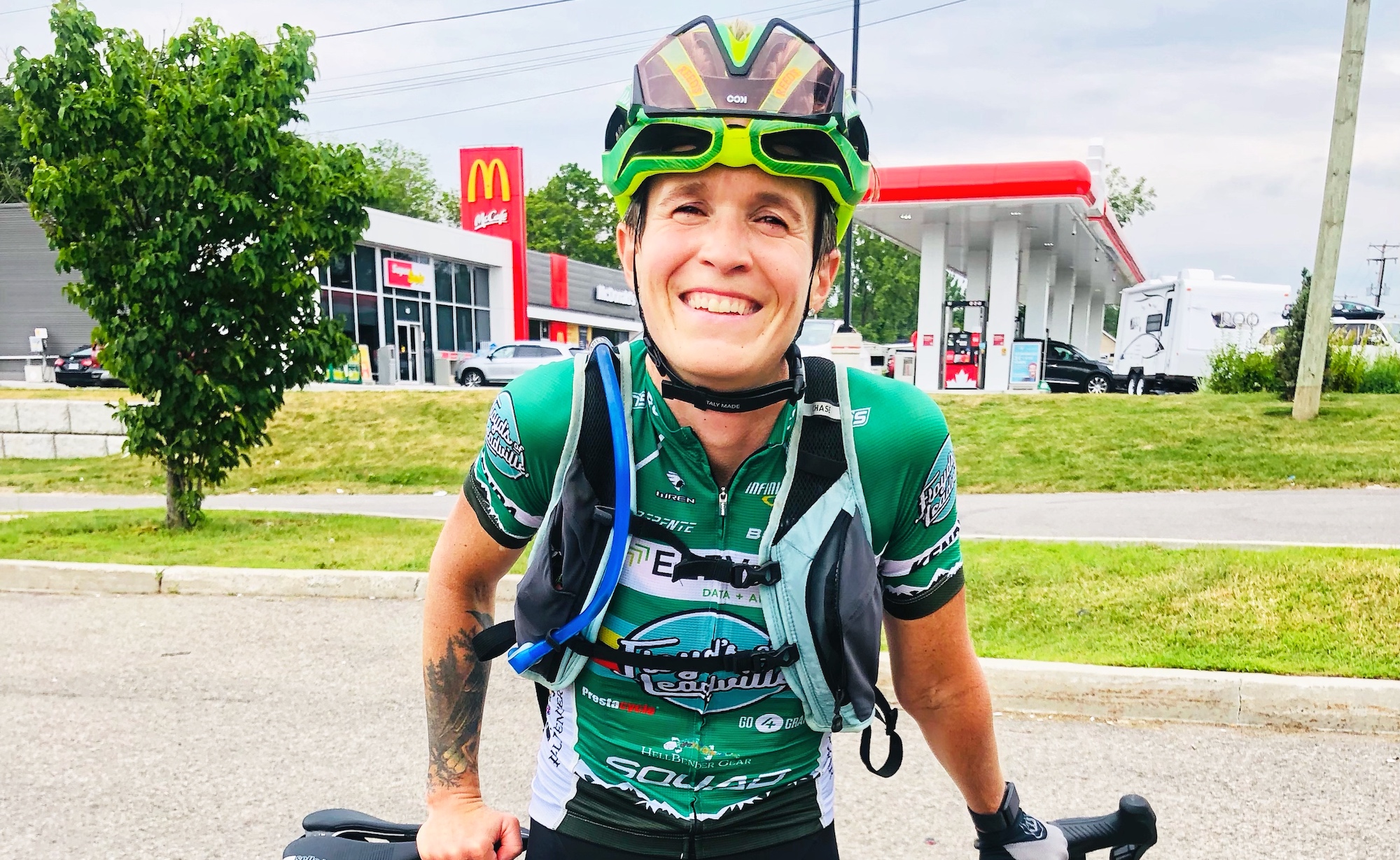 "Failing that drug test was the best thing that had ever happened to me"
"Failing that drug test was the best thing that had ever happened to me"Abuse victim and disgraced cycling champion Geneviève Jeanson finds solace in return to bike racing
By Anne-Marije Rook Published
-
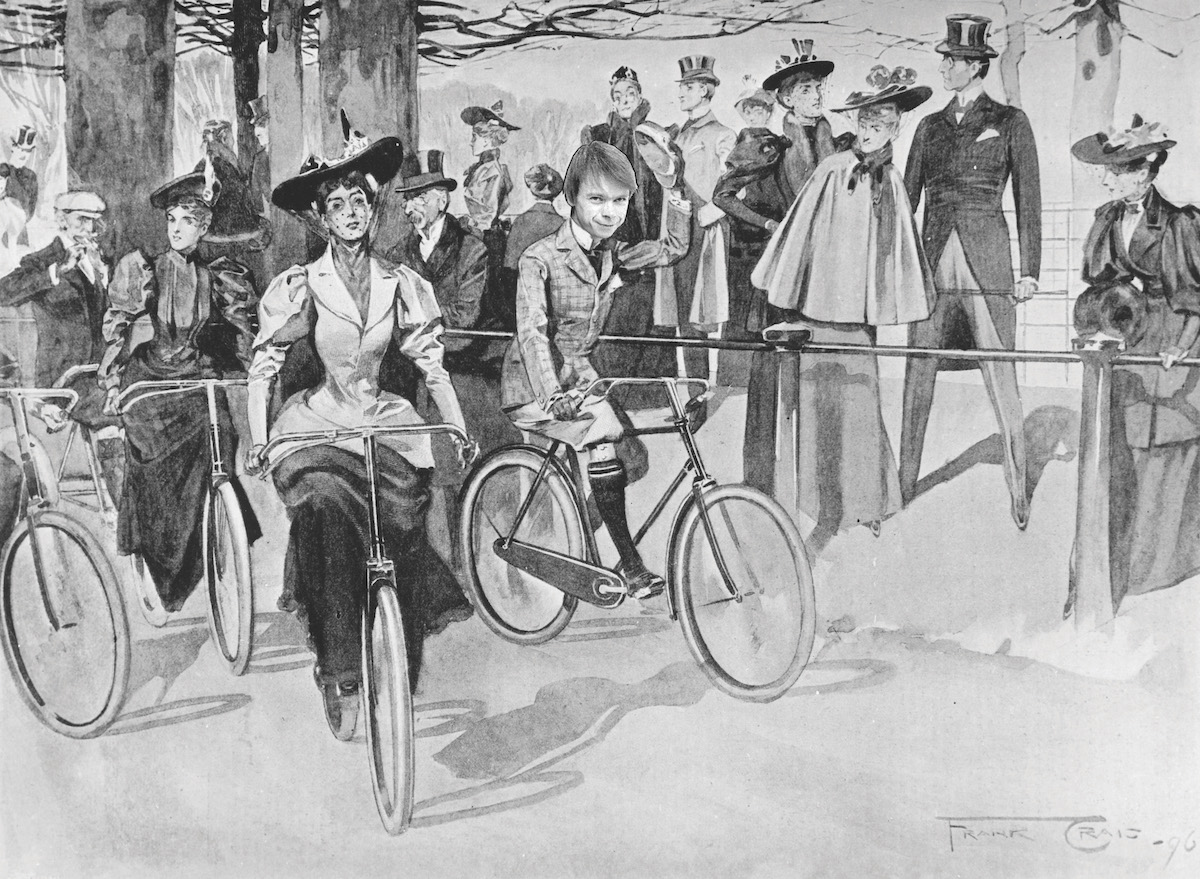 Dr Hutch: Why women were the pioneers of bike racing
Dr Hutch: Why women were the pioneers of bike racingIf it wasn't for female riders, we'd all still be falling off our Penny Farthings
By Michael Hutchinson Published
-
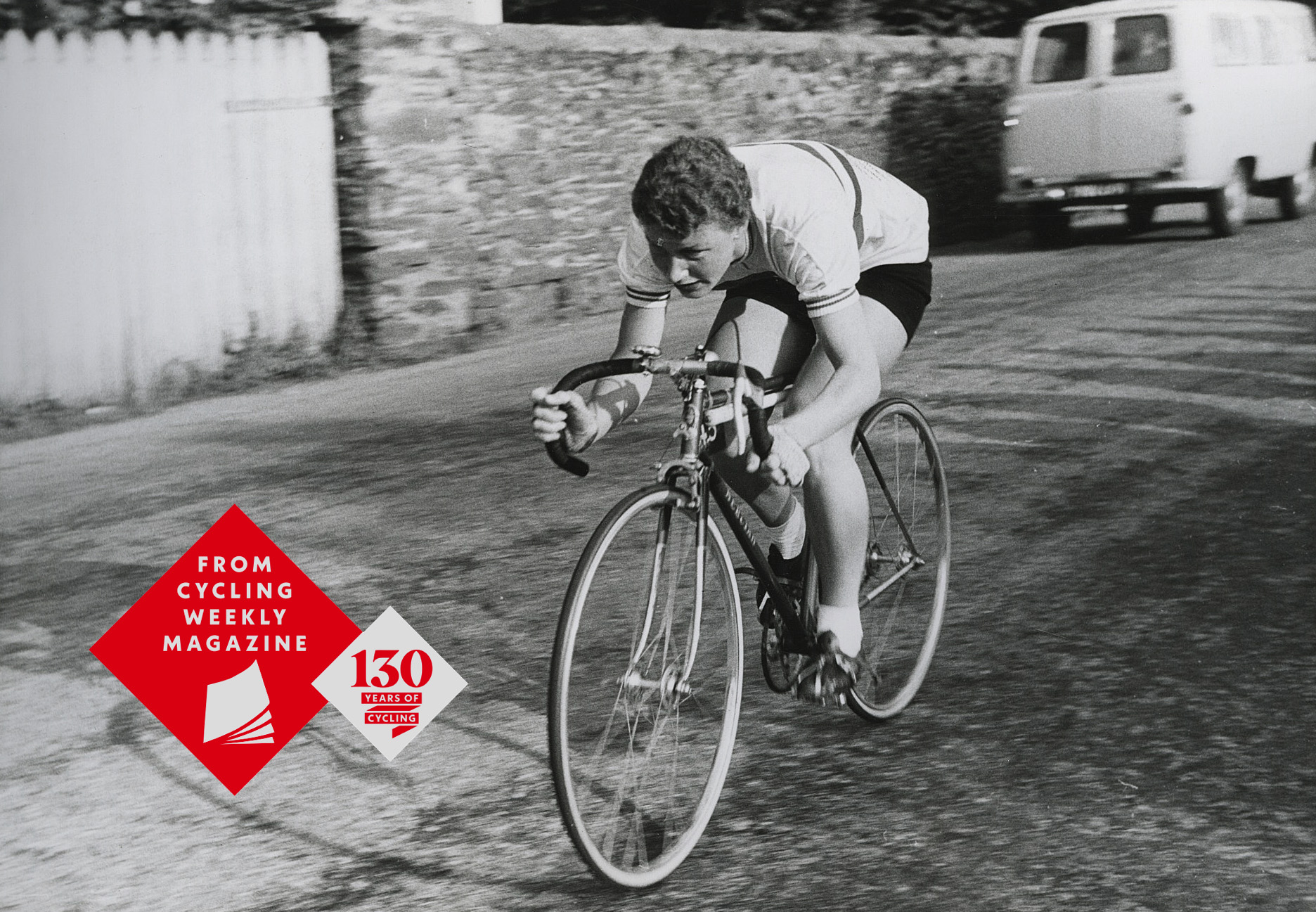 Beryl Burton: Meet the British legend
Beryl Burton: Meet the British legendFrom the 50s to the 80s, Beryl Burton dominated British women’s racing, CW looks back at her prolific career
By Hugh Gladstone Published
-
 British New Wave: Launch of the rainbow warrior - Evie Richards
British New Wave: Launch of the rainbow warrior - Evie RichardsOff-road aficionado Evie Richards no longer needs to chase rainbows. The rainbows come to her...
By Vern Pitt Published